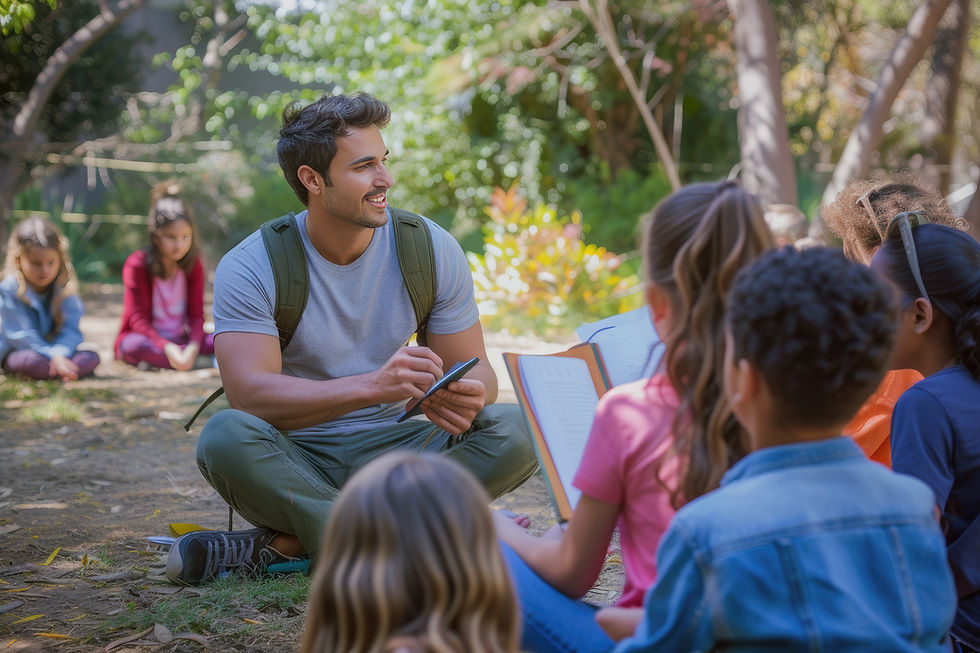Sustainability and outdoor education
Understanding How Students Learn – A Neuroscience-Based Approach Through Outdoor & Experiential Learning
6 Days
This experiential course blends the latest neuroscience research with outdoor learning and field-based activities in the unique natural environment of the Azores. Through a balance of theory and practice, participants will explore how the brain learns best, how emotions and environment shape memory and attention, and how to design lessons that are both engaging and brain-friendly.
The course emphasizes active learning, field observation, and collaborative problem-solving, providing educators with concrete tools for integrating neuroscience-informed strategies into their teaching practice.
Learning Outcomes
Participants to the course will learn to:
Understand the key principles of neuroscience relevant to teaching and learning.
Recognize the influence of emotions, environment, and movement on cognitive processes.
Apply brain-friendly strategies for attention, memory, and motivation.
Integrate outdoor learning experiences to enhance retention and engagement.
Promote inclusive and adaptive teaching practices.
Programme
Understanding How Students Learn – A Neuroscience-Based Approach Through Outdoor & Experiential Learning
Day 1 – Introduction to the Brain & Learning (Active Citizenship approach)
Welcome & course presentation
Group dynamics and icebreakers to activate the social brain
Participants’ school presentations & sharing teaching challenges
Introduction to basic brain anatomy and how learning happens
Outdoor activity: walk around Ponta Delgada to identify environments that stimulate curiosity and observation
Reflection: How can outdoor settings support attention and memory?
Day 2 – Memory, Attention & Neuroplasticity (Environmental Sustainability approach)
Morning session: neuroscience of memory formation and retrieval
Guided tour to Caldeira das Furnas and visit to an interpretation center
Pair activity: nature observation and linking sensory input to memory formation
Reflection: How can we use nature to improve retention and learning?
Day 3 – The Emotional Brain & Motivation (Wildlife and Conservation approach)
Morning session: understanding the role of emotions in learning and the “social brain”
Whale and dolphin watching: learning from observation and real-life experiences
Group discussion: connecting wildlife encounters to emotional engagement in students
Reflection: How to design lessons that trigger curiosity and empathy?
Day 4 – Leadership & Collaborative Learning (School Leadership approach)
Morning session: leading brain-friendly group activities and peer learning
Program in Vila Franca do Campo with practical team challenges
Organizing and leading an outdoor problem-solving activity
Reflection: How can collaborative, real-world activities stimulate higher-order thinking skills?
Day 5 – Cultural Learning & Cognitive Stimulation (Positive School Culture approach)
Visit to Gorreana Tea Factory – sensory exploration and cultural learning
Workshop: designing activities that combine curriculum content with cultural and sensory elements
Reflection: How can cultural experiences enhance brain engagement and memory consolidation?
Day 6 – Integration & Action Plan (Outdoor Education approach)
Outdoor activity in Ponta Delgada city integrating STEAM, history, narrative, and civic competences
Summary of key neuroscience-informed strategies explored during the week
Group presentations of action plans for applying course concepts in their schools
Final evaluation, feedback, and certificate ceremony
Materials, digital tools & other learning resources
Course participants will receive training and engage in exercises designed to develop their skills as trainers. The provision of additional materials or resources will be determined based on the course structure and the instructor’s approach to meeting the learning objectives
Course package content:
Services and activities included in the course package are those described above. Please note that accommodation, transport, and meals are not provided.
Cancellation & changes:
Common sense prevails when it comes to cancellations, which are analyzed on a case-by-case basis.

